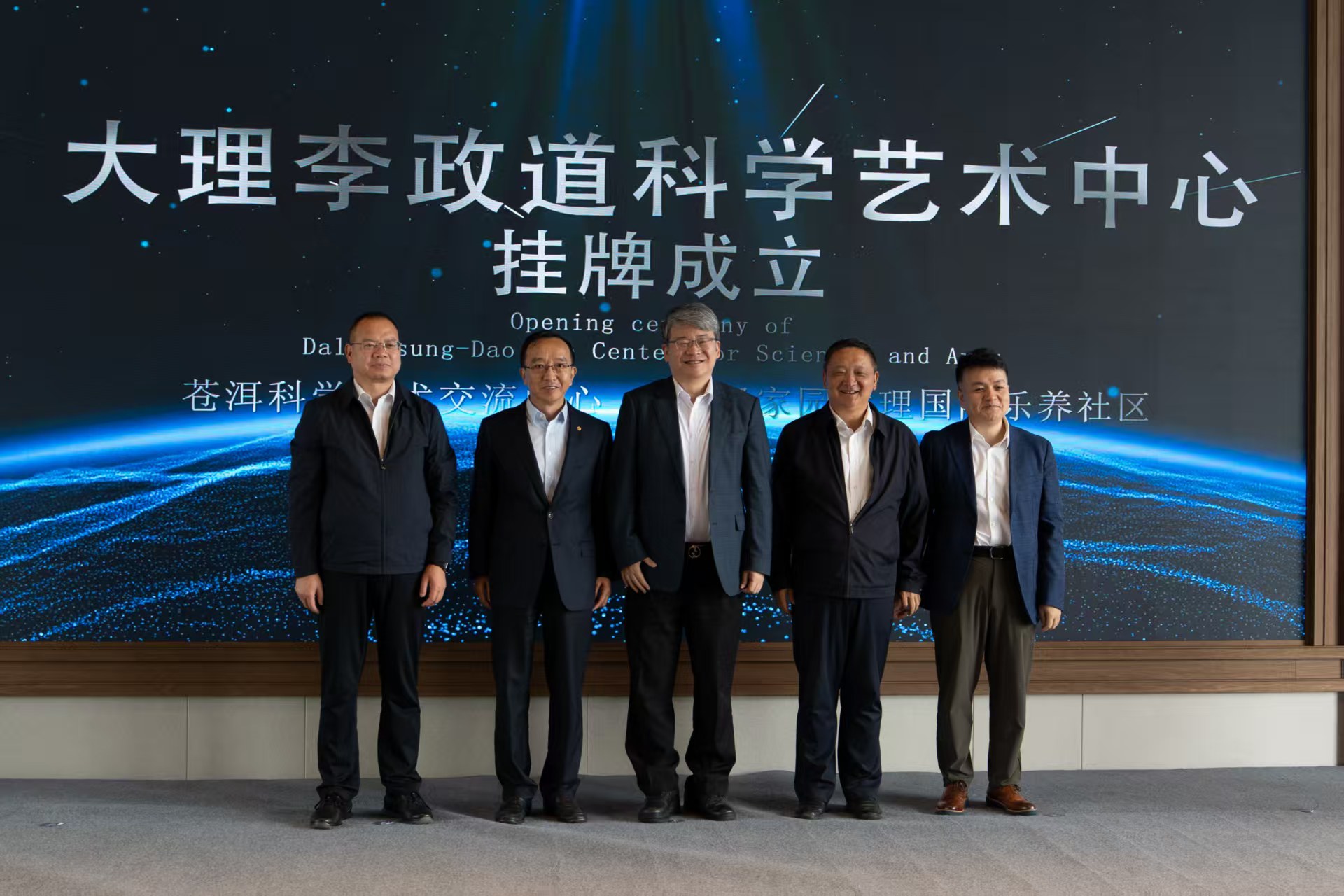On the morning of July 6, 2025, the Dali Tsung-Dao Lee Center for Sciences and Arts was officially inaugurated at the Pacific Care Home Dali International Holiday Retirement Community. Spearheaded by Academician Ding Hong, Deputy Director of the Tsung-Dao Lee Institute at Shanghai Jiao Tong University, the center is jointly established by the Cang-Er Center for Scientific and Artistic Exchange of the Dali Bai Autonomous Prefecture and the Pacific Care Home Dali International Holiday Retirement Community. Inspired by Nobel Laureate Tsung-Dao Lee’s vision that “science and art are two sides of the same coin,” the center aspires to become a world-class interdisciplinary innovation platform—integrating science, art, and nature.

The unveiling ceremony was jointly officiated by Academician Hong Ding, Mr. Fan Fu, Chairman and Party Secretary of China Pacific Insurance (Group) Co., Ltd. and Mr. Guozong Yang, Party Secretary of Dali Prefecture. All three delivered opening remarks. The ceremony was witnessed by a distinguished gathering, including Academicians Enge Wang, Gang Tian, Xincheng Xie, Xianhui Chen, and Chao Tang of the Chinese Academy of Sciences; Professor Fuchun Zhang, Director of the Kavli Institute for Theoretical Sciences at UCAS; Professor Ziqiang Wang of Boston College; Mr. Guohua Yuan, Party secretary and chairman of Shanghai State Owned Capital Investment Co., Ltd.; Mr. Wu Wang, Head of the Organization Department of Dali Prefectural Committee; as well as representatives from leading universities, research institutes, companies and governments.
The Dali Tsung-Dao Lee Center for Sciences and Arts takes "Science, Art, and Nature" as its core theme and draws inspiration from global renowned academic institutions such as the Aspen Center for Physics. It focuses on cutting-edge issues in fundamental science and avant-garde explorations in artistic creation. The center is equipped with 30 independent workspaces to support long-term residency programs for small research groups, alongside comprehensive facilities for conferences, accommodations, and office use. The center plans to host approximately 20 international academic and artistic events annually, each lasting from one to four weeks, bringing together some of the world’s most creative scientists and artists. These extended gatherings in the picturesque setting of Dali are designed to foster open dialogue, spark inspiration, and generate original, boundary-breaking outcomes.
In addition to academic exchange, the center will also engage with the public by organizing science lectures and art exhibitions in collaboration with local universities and media outlets, promoting cross-disciplinary communication and public participation.
As a key precursor to the center’s establishment, the Tsung-Dao Lee Institute and the Institute of Physics, Chinese Academy of Sciences, co-hosted the International Conference on Majorana Zero Modes: from Topological Superconductors to Non-Abelian Braiding Statistics in Dali this past February. The event brought together over 60 experts from 23 leading global universities and research institutions, receiving high acclaim and reinforcing the decision to establish the center in Dali. On July 5, the center successfully hosted the Symposium on the Beauty of Science and Art. Experts from diverse fields—including physics, mathematics, life sciences, artificial intelligence, and design gathered for in in-depth discussions on themes like “The Beauty of Quantum” and “The Beauty of AI,” showcasing the boundless possibilities at the intersection of science and art.
In his speech at the inauguration, Academician Hong Ding stated: “The original vision of the Tsung-Dao Lee Center for Sciences and Arts is to organically integrate science, art, and nature—to create an environment that truly inspires creativity and interdisciplinary thinking. After visiting many locations across China, we chose Dali for its natural beauty and cultural depth—perfectly aligned with our mission.”

Looking ahead, the Dali Tsung-Dao Lee Center for Sciences and Arts will remain committed to the spirit of free exploration and cross-disciplinary collaboration, serving as a bridge—connecting China with the world, science with art, and ideas with nature. The center sincerely welcomes scholars, institutions, and academic societies worldwide to host forward-looking and impactful academic and artistic events, and to engage in deep, sustained dialogue on core issues in their fields, inspiring new possibilities for the future of science and art.
Editor on Duty: Yan Cheng

